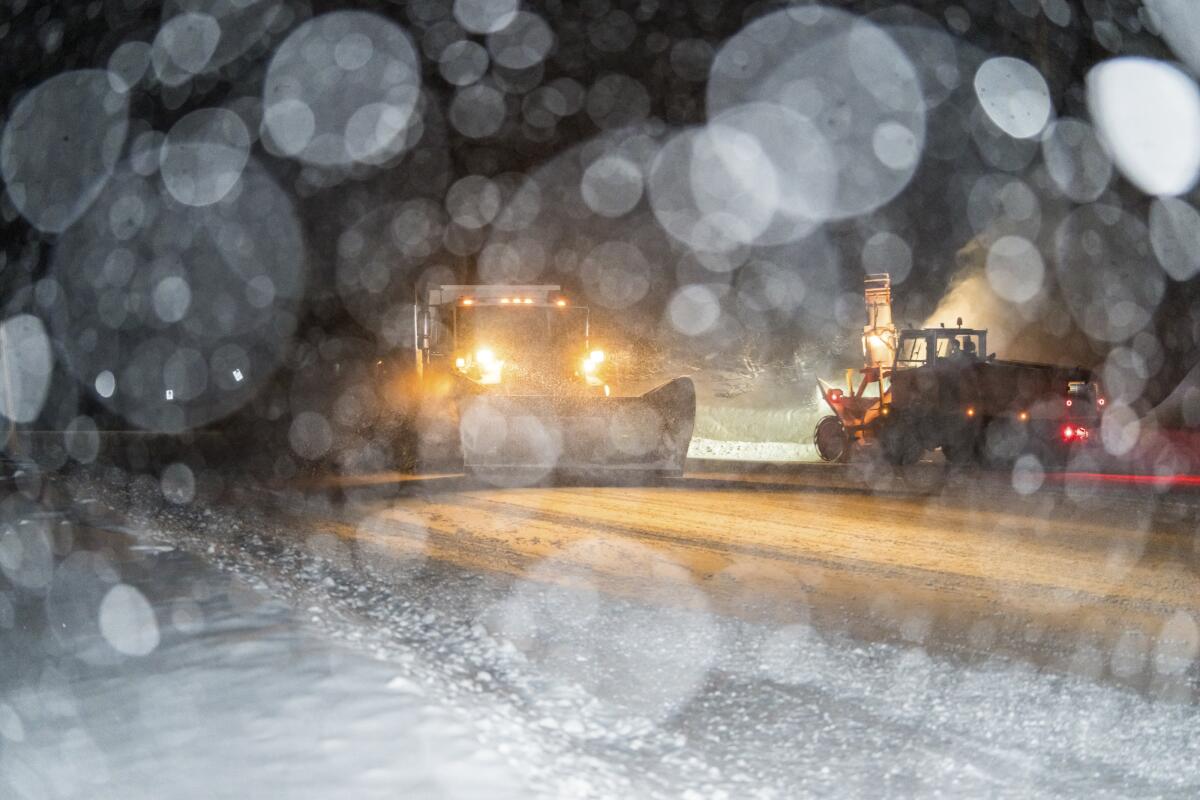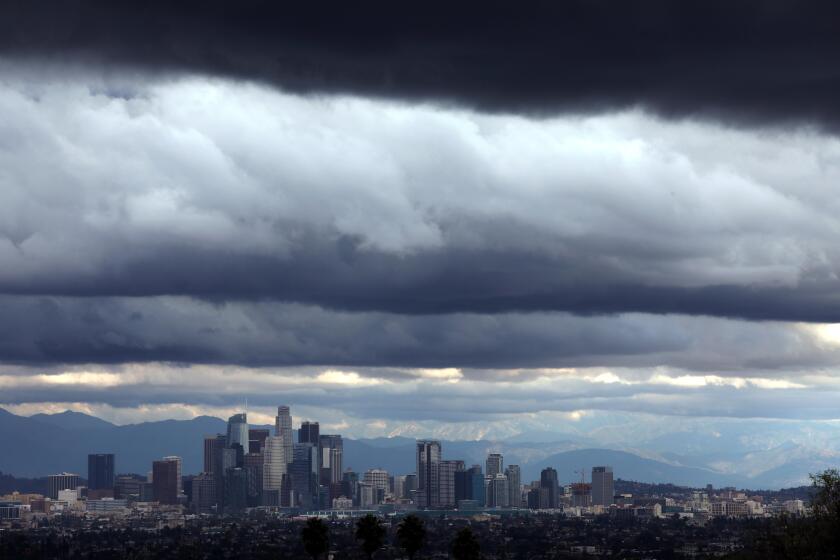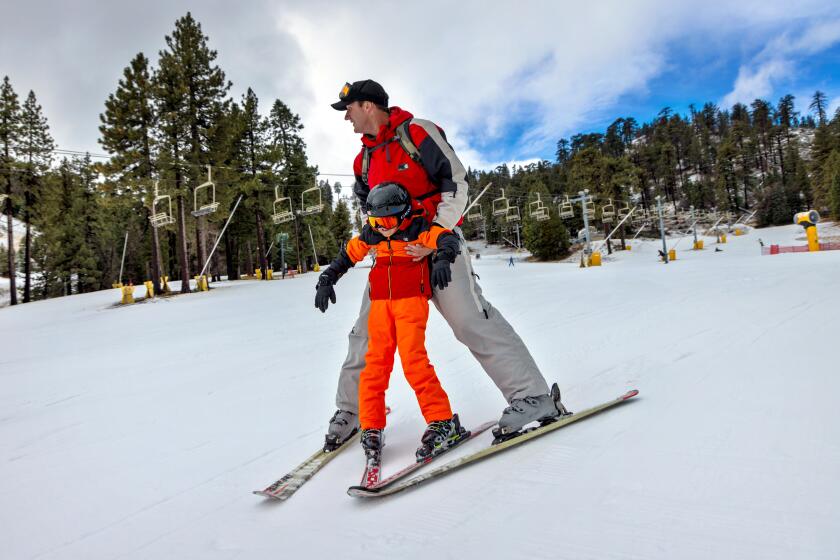Storm drops snow across the Sierra, including at ski resorts. Will it stave off the snow drought?

The latest storm dumped about a foot of snow in the Sierra Nevada and Lake Tahoe regions, including at major ski resorts, alleviating the threat of a “drought” resulting from a depleted snowpack.
Between Sunday and Tuesday morning, Mammoth Mountain got 10 inches at the base and 13 inches at the summit, according to the National Weather Service. Chairlift openings may be delayed while ski patrol conducts avalanche mitigation, resort officials said.
The storm also dropped 12 inches on Boreal Mountain Resort, near Donner Summit, and Bear Valley; 11 inches on June Mountain, Sugar Bowl and Kirkwood; and 9 inches on the Central Sierra Snow Lab in Soda Springs. Northstar, near Truckee, Mt. Rose and Tahoe Donner, near Lake Tahoe, received 6 inches, while Heavenly saw about 3.
A winter weather advisory was in effect until Tuesday morning for the Lake Tahoe basin, including the cities of Truckee, Tahoe City, South Lake Tahoe, and for elevations above 6,500 feet, according to the weather service. About 6 to 14 inches of snow was forecast for elevations between 6,500 and 7,000 feet. Forecasters warned of gusty winds and dangerous conditions that could make travel difficult.
Low precipitation and warm temperatures are hampering snow accumulation in the Sierra Nevada and western United States, experts say.
“This was kind of a quick, fairly weak storm,” said NWS meteorologist Dawn Johnson. “The snow character was heavier and wetter overall, but we were dealing with higher snow levels.We confined higher snow levels to above 7,000 feet, so there were lesser amounts closer to Lake Tahoe level.”
The storm favored areas toward the south, Johnson said, so there were higher totals in Mammoth and June in the Eastern Sierras.
Despite the recent storms, the lackluster water year has raised concerns that the region may be facing a “snow drought” that could have implications for both wildfire season and the state’s water supply.
Mammoth Mountain received a total of 26 inches of snow from Oct. 1, the start of the water year, to the end of December, according to the resort. Last year during that period, the resort got 177 inches.
The statewide snowpack water content was 55% of normal Jan. 22, up from 49% last week, according to the Department of Water Resources’ California Data Exchange Center.
The latest storm is expected to drop little, if any, snow on Southern California. Resorts in the San Gabriel and San Bernardino mountains are hoping to get more snow over the next few weeks to help kick off the ski season.
Californians depend on the spring and summer melt for about a third of the water supply. A “snow drought” could lead to drier, more fire-prone forests.
“We’re definitely below normal when it comes to snowfall,” Johnson said. “Because we had such a large water year the year before, that has carried us over so far. If we do continue the pattern, it’s gonna take a lot more snow to catch up to where we should be at the end of the season.”
Johnson said that while it’s “not impossible” to get snowfall totals up to normal amounts over the next few months, it’ll prove more difficult heading into spring, when there is lesser chance of storms.
“It’s getting harder and harder to do that given that we’re getting into the later part of January,” he noted.
More to Read
Sign up for Essential California
The most important California stories and recommendations in your inbox every morning.
You may occasionally receive promotional content from the Los Angeles Times.













